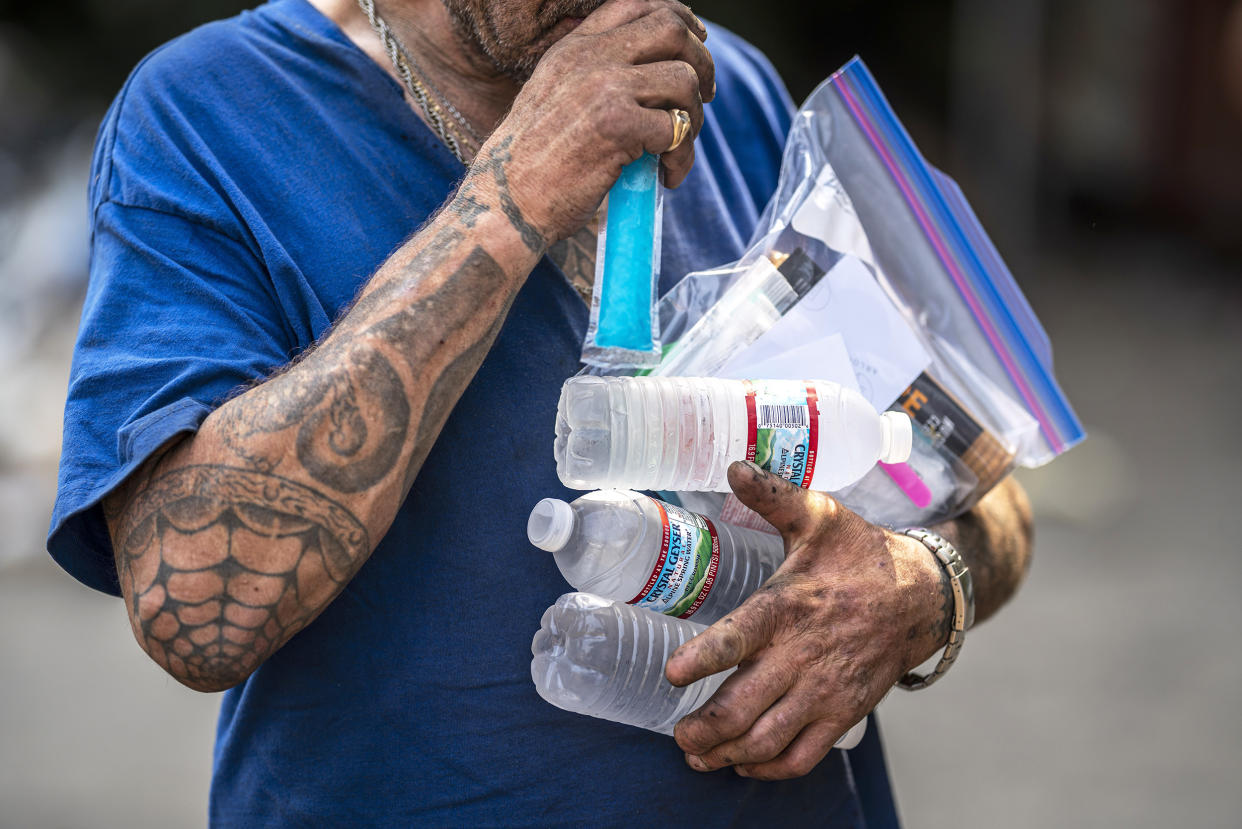Oregon county sues fossil fuel companies, alleging they caused deadly 2021 heat wave in Northwest

An Oregon county filed a lawsuit Thursday that blames fossil fuel companies and industry boosters for the deadly 2021 heat wave that killed hundreds of people in the Pacific Northwest.
The lawsuit from Multnomah County, which contains Portland and its suburbs, says the heat dome was not a natural event but "a direct and foreseeable consequence" of oil companies' actions to sell as many fossil fuel products as possible for decades and to "lie" about the harms of those products.
Sixty-nine people died because of the heat dome event, which sent temperatures soaring across the Pacific Northwest for several weeks, according to the suit filed in a circuit court. During the most intense three-day period of heat, temperatures in Multnomah County hit highs of 108, 112, and 116 degrees.
The lawsuit lists 17 defendants, including Exxon Mobil, Shell, Chevron and the Western States Petroleum Association.
This lawsuit is the 36th time a municipality has sued fossil fuel companies for alleged harms resulting from climate change, according to the Center for Climate Integrity, an advocacy group that supports such lawsuits. This claim is the first tied to the 2021 heat dome and one of the first to sue over a specific event worsened by climate change.
The June 2021 heat wave was “virtually impossible" if not for the impacts of climate change, according to climate experts. A peer-reviewed study found the event was at least 150 times less likely if global temperatures had not warmed so much because of human activity.
The heat wave had dramatic impacts across the Pacific Northwest, where many communities lack air conditioning because of the typically mild climate. Searing temperatures crumbled streets, caused baby birds to jump to their deaths and killed millions of sea creatures along the coastline. Emergency departments were overwhelmed with patients suffering heat-related ailments.
In addition to the fatalities in Oregon, hundreds of people died in Washington state and British Columbia, according to a study led by a University of Washington professor and Canadian officials, respectively.
Multnomah County is seeking $50 million in damages, $1.5 billion in future damages and a $50 billion abatement fund — to "weatherize" the county and plan for future harms as a result of global warming that results from fossil fuel use.
The lawsuit says the record heat wave required emergency care for hundreds of people, provoked an uptick in crime and required the county to spend "taxpayer money to provide people with shelter, cooling centers, fans, food, portable air conditioners, clothes, and water."
Since the event, the county has spent more money to warehouse supplies, increase shelter space and staff up for future heat waves, among other expenses.
"Still, the County lacks the resources to adequately prepare for comparable or more severe heat extremes," the lawsuit says.
A spokesperson for defendant Exxon Mobil said suits like the county’s “continue to waste time, resources and do nothing to address climate change.”
“This action has no impact on our intention to invest billions of dollars to leading the way in a thoughtful energy transition that takes the world to net zero carbon emissions,” the spokesperson said in the statement.
The Western States Petroleum Association, one of the primary oil industry trade associations in Oregon, which counts some of the lawsuit's defendants as members, did not immediately respond to a call or email for comment. Shell also did not immediately respond to a request for comment.
Theodore J. Boutrous Jr. of Gibson, Dunn and Crutcher, counsel for Chevron Corporation said, in part, that lawsuits like these are “counterproductive distractions from advancing international policy solutions.”
Multnomah County's board of commissioners authorized the lawsuit in a weekly meeting. The county has secured outside lawyers for the case and won't pay legal fees unless it receives a judgment in its favor, according to meeting documents.
This article was originally published on NBCNews.com

